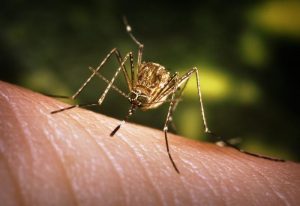Niagara Region Public Health has received its first laboratory-confirmed case of West Nile Virus for 2017.

Although most people infected with West Nile Virus do not get sick, 20 per cent of people suffer flu-like symptoms and fatigue, and one per cent suffer serious infections of the brain such as meningitis. Fever, severeheadache, body aches, neck stiffness, confusion, weakness, tremors, and sudden sensitivity to light are the mostcommon symptoms of severe infection. Anyone suffering these should see a physician.
To reduce the risk of being exposed to West Nile Virus, Public Health advises the following to prevent mosquito bites:
- Drain standing water around the home where mosquitoes may breed (e.g., bird baths, plant saucers, tires,toys, pails, and wheel barrows)
- Repair damaged doors and window screens
- Avoid mosquito-infested areas
- Wear long-sleeved shirts, hats, long pants, socks and shoes that cover the feet. This is particularlyimportant at dawn and in the evenings when mosquitoes are most active.
- Use insect repellants containing Deet or Icaridin. Always follow the manufacturer’s instructions.
Get the lowest price on London Hop-on Hop-off Tours
Related:
- Lyme disease treatment: Some thoughts
- Antibiotic stewardship: A look at penicillin allergies
- Infectious disease ‘pearls’: Treatment and diagnostics
- Toronto: First human case of West Nile virus of 2017 reported
- Minnesota measles outbreak declared over
- Lyme disease: Locally acquired cases up in Toronto

